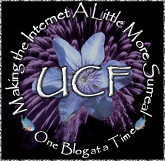Today I ordered some egg drop soup from a drive-thru Chinese takeout (not the one I worked at), and asked for it to be made without any cornstarch.
The lady at the window remarked that the kitchen staff prefer it that way too. She had never tried it that way herself, but now she was curious.
I told her that the reason cornstarch is added is because Americans like it that way. Americans prefer their broths and sauces to be thick, so Americanized Chinese food has cornstarch in everything. But Chinese people themselves prefer thin and watery.
("Americans" is the term that Chinese communities use amongst themselves to refer to white people. That or "foreigner" - as in foreign to China. The thought that it doesn't technically apply when all people mentioned are living in America, never really comes to mind. (Black people are just called "black people."))
Of course, then I had to start saying "non-Asians" in order to make sense to the window lady, who was white. I probably still managed to offend her. Doh.
03 April 2009
Subscribe to:
Post Comments (Atom)

6 comments:
Oh well.
Despite John the Scientist and his Stinky Tofu and Durian, I like Chinese (and a lot of Asian, especially Philippine and Vietnamese) food, and prefer it to be authentic.
That's why I use USians to refer to Americans (as in, foreigners from America:P). It makes you sound...alien.
I had a discussion with Mega the other day about that. He said he liked 'Statesmen', like, people from the States. I guess that sounds OK too!
And you'll have to give me some suggestions what to order when I go to that Chinese restaurant next time. I ordered something not too tasty, but I guess that's because I'm a stupid gaijin (yes, I know that's a word used by the Japanese, not Chinese), not because the food was bad. :D
Vince:
Did you ever eat those cookies?
John:
I've only heard "hae ren" - "black people" - so it may be a Min Taiwanese thing. ;) But my understanding of it is that the Chinese (and south Asians) have been familiar with black people for a lot longer than white people, because they were trading with the east coast of Africa long before any Europeans made it over. (And, in fact, the trade that was going on was the reason why the Europeans wanted to get there in the first place, so they could get in on the action.)
Bakho:
Well, it's actually "may guo ren" which translates to "the pretty country's people" which is what USians are called. (Canada is called "Jia La Dah.") Foreigner is "wai guo ren" - "outside" "country" "people" or "people from outside of the country [of China]."
Also, ain't it grand that they refer to you as the foreigner in your own country? ;)
Hehe. I know how you feel. People from BiH do that to us all the time. Sometimes they even try to make you feel bad because you don't speak with their accent. o.O
Bakho-
Chinese:
美國人 - mei guo ren (American)
外國人 - wai gwo ren (non-Chinese, foreigner)
Japanese
外人 - gai jin (short form)
外国人 gai koku jin (ling form)
The Japanese term for foreigner is exactly the same as the Chinese, it's just that the words that Japanese characters represent can be polysyllabic, whereas it's one character = one sound in Chinese. Therefore, the Japanese have a much greater propensity to shorten compound words by dropping a character or two.
The 国 character is an "abbreviation" of the 國 character that Japanese and Mainland Chinese use. Taiwanese and Hong Kongese are purists and use the traditional, more complex character.
The 美 character is left over from an old attempt to render foreign country names in Chinese, and represents the "me" sound in America. It got shortened to just "Mei guo", though. 美 means pretty in Chinese. Similarly, Germany is 德國 "de guo", with the "de" character ( meaning "virtue") a truncated form of an attempt to transliterate "Deutchland" into Chinese.
The Japanese also tried to Kanjify foreign place names, but used different characters, until they gave up and just transliterated all but Chinese foreign place names into katakana. Their "old style" name for America was Bei koku: 米国 - literally "rice country. Uh huh. Japan calling America the "rice country. o.O
@John: I knew that would send you into an explanation frenzy! :D
Interesting stuff! Thanks for the info!
Post a Comment